 March 2024 in “Romanian Medical Journal”
March 2024 in “Romanian Medical Journal” Inositol shows promise in treating PCOS and other health issues, but more research is needed.
 March 2024 in “Journal of Natural Remedies”
March 2024 in “Journal of Natural Remedies” An 18-year-old with hair loss saw hair regrowth after treatments combining microneedling, cupping, medication, and oil application.
 March 2024 in “IP Indian journal of clinical and experimental dermatology”
March 2024 in “IP Indian journal of clinical and experimental dermatology” Elderly in South India commonly suffer from skin issues like wrinkles, dryness, and infections, needing better skin care education.

Autonomous robotic surgery is advancing but still requires human supervision for complex procedures.
 December 2023 in “International journal of statistics and probability”
December 2023 in “International journal of statistics and probability” Blood type affects COVID-19 infection rates differently in Europe and Africa.
 October 2023 in “International journal of science and research”
October 2023 in “International journal of science and research” Ayurvedic treatments can effectively regrow hair in Alopecia Areata without side effects.
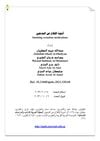 October 2023 in “Deleted Journal”
October 2023 in “Deleted Journal” No single method is best for quitting smoking; it depends on individual preferences and health.
 August 2023 in “Natural Resources for Human Health”
August 2023 in “Natural Resources for Human Health” Vegetarians should take B vitamin supplements to avoid health issues.
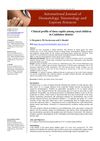 July 2023 in “International journal of dermatology, venereology and leprosy sciences”
July 2023 in “International journal of dermatology, venereology and leprosy sciences” Most rural children with scalp ringworm had a non-inflammatory type and early treatment is important to prevent complications.
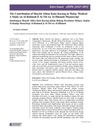 May 2023 in “Jurnal Sains Insani”
May 2023 in “Jurnal Sains Insani” Shaykh Abbas Kuta Karang significantly advanced Malay medical knowledge with his detailed manuscript.
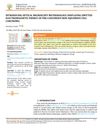 February 2023 in “International journal of research - granthaalayah”
February 2023 in “International journal of research - granthaalayah” The new microscope method helps study energy from pre-cancerous skin cells.
 February 2023 in “European journal of geriatrics and gerontology”
February 2023 in “European journal of geriatrics and gerontology” Selenium helps prevent thyroid issues and cognitive decline in the elderly, but balance is key.
 January 2023 in “Zenodo (CERN European Organization for Nuclear Research)”
January 2023 in “Zenodo (CERN European Organization for Nuclear Research)” Olive oil can help regrow hair lost due to COVID-19 or vaccination.
 October 2022 in “Southeast Asian journal of health professionals”
October 2022 in “Southeast Asian journal of health professionals” Hair greying is seen as a sign of aging; temporary fixes like hair dye are used, but a balanced diet and hair care can help manage it.
 January 2022 in “Acta botanica Caucasica”
January 2022 in “Acta botanica Caucasica” Turkish herbal cosmetics use various plants for hair care, skincare, and other personal hygiene purposes.
 June 2021 in “EBioMedicine”
June 2021 in “EBioMedicine” The authors maintain that shorter androgen receptor alleles may lead to milder COVID-19 by positively affecting the immune response, not due to changes in testosterone levels or activity.

The guide suggests using keratin fibers and wigs to help hair look thicker or hide hair loss.
 July 2020 in “The journal of investigative dermatology/Journal of investigative dermatology”
July 2020 in “The journal of investigative dermatology/Journal of investigative dermatology” The enzymes Tet1, Tet2, and Tet3 are important for the development of hair follicles and determining hair shape by controlling hair keratin genes.

Activin A increases inner ear hair cell development, while follistatin decreases it.
 February 2019 in “Journal of the Faculty of Agriculture Kyushu University”
February 2019 in “Journal of the Faculty of Agriculture Kyushu University” Terpene concentrations in coniferous trees are highest in spring and summer, making these seasons best for extracting essential oils.
 May 2018 in “Academic Medicine”
May 2018 in “Academic Medicine” Hair loss can cause significant emotional and psychological distress.
 April 2018 in “Journal of Ayurvedic and herbal medicine”
April 2018 in “Journal of Ayurvedic and herbal medicine” Computational methods can speed up and improve the development and safety of herbal drugs.
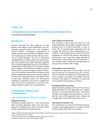
Melanocyte transplantation can safely restore skin color, especially in stable vitiligo, but must be chosen carefully based on the disease phase.
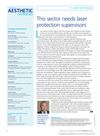 February 2018 in “Journal of Aesthetic Nursing”
February 2018 in “Journal of Aesthetic Nursing” Clinics using lasers should have trained laser safety supervisors to reduce accidents and possibly lower insurance costs.
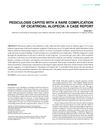 January 2018 in “International Journal of Medical Reviews and Case Reports”
January 2018 in “International Journal of Medical Reviews and Case Reports” A 6-year-old girl with head lice developed scarring hair loss but improved with treatment.
 October 2017 in “Journal of Investigative Dermatology Symposium Proceedings”
October 2017 in “Journal of Investigative Dermatology Symposium Proceedings” Using lidocaine before keloid injections makes the treatment more comfortable for patients.
 April 2017 in “International journal of research in Ayurveda and pharmacy”
April 2017 in “International journal of research in Ayurveda and pharmacy” Ayurvedic methods can help reduce the harmful effects of chemicals in cosmetics.

Cosmetics can help with mild skin problems and daily care but must be used carefully to avoid skin irritation.
 September 2016 in “Princeton University Press eBooks”
September 2016 in “Princeton University Press eBooks” The document concludes that understanding health requires considering evolutionary perspectives on reproductive fitness, and recognizing the complexity of factors like diet, testosterone, and sexual orientation.

Off-label drug use can be risky but sometimes beneficial when standard treatments fail.






























